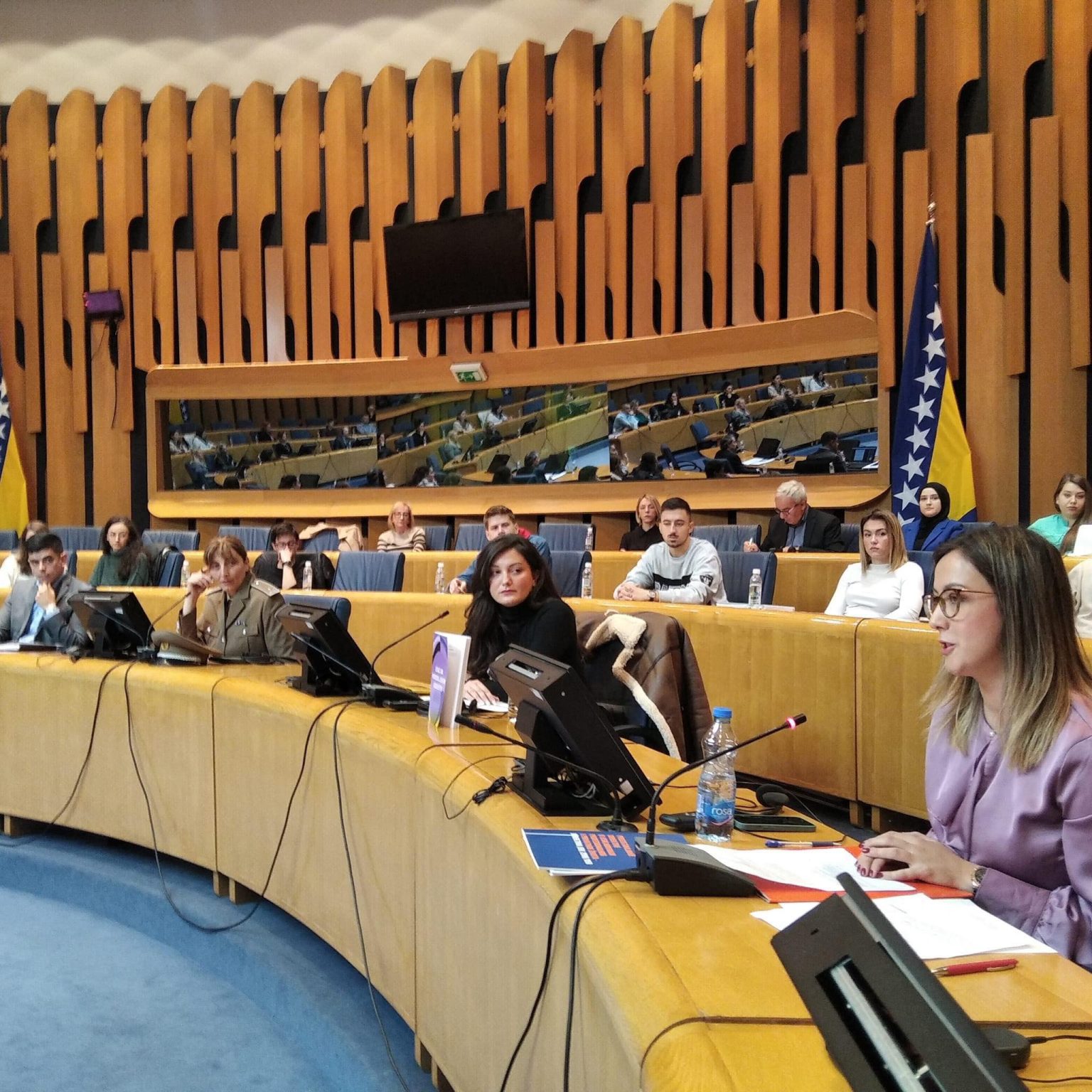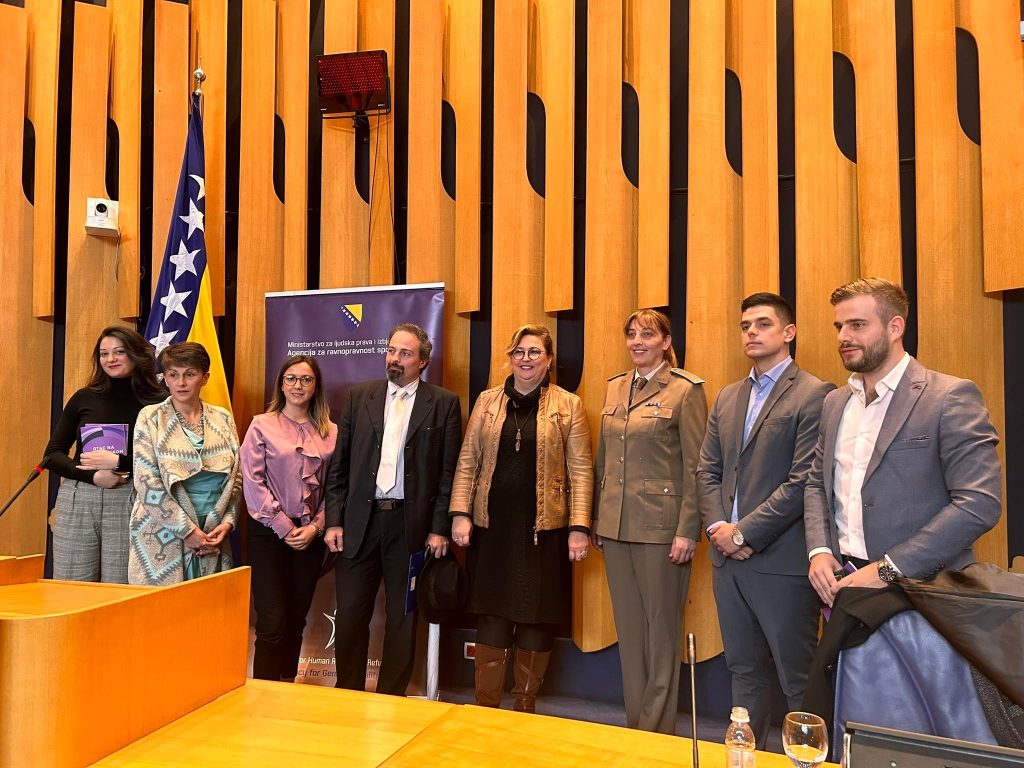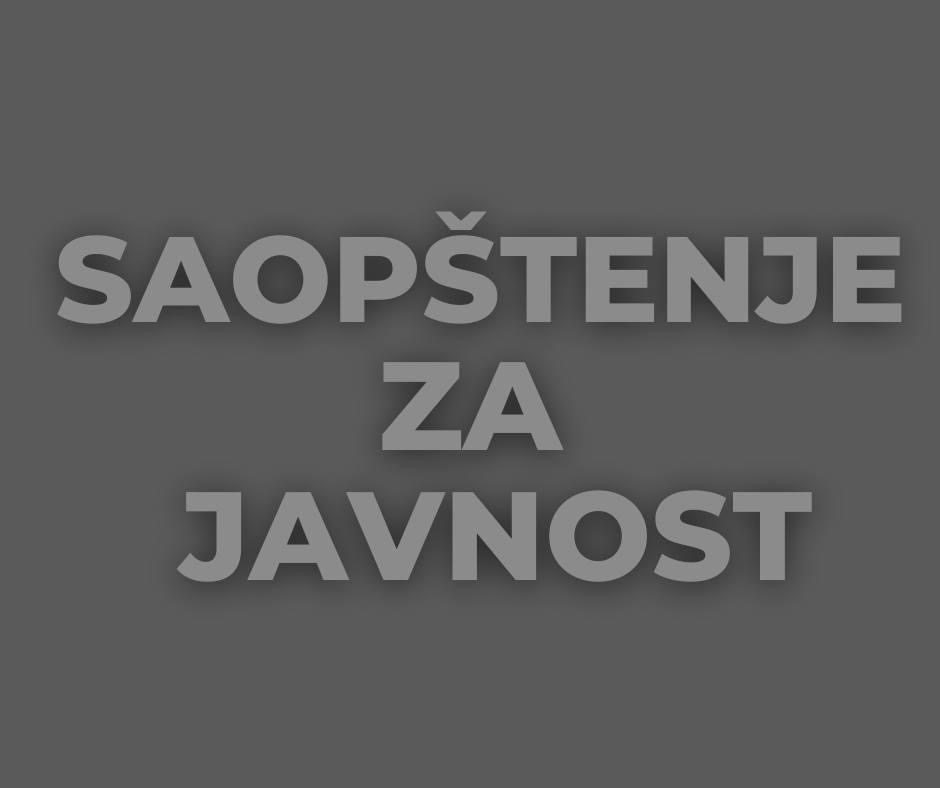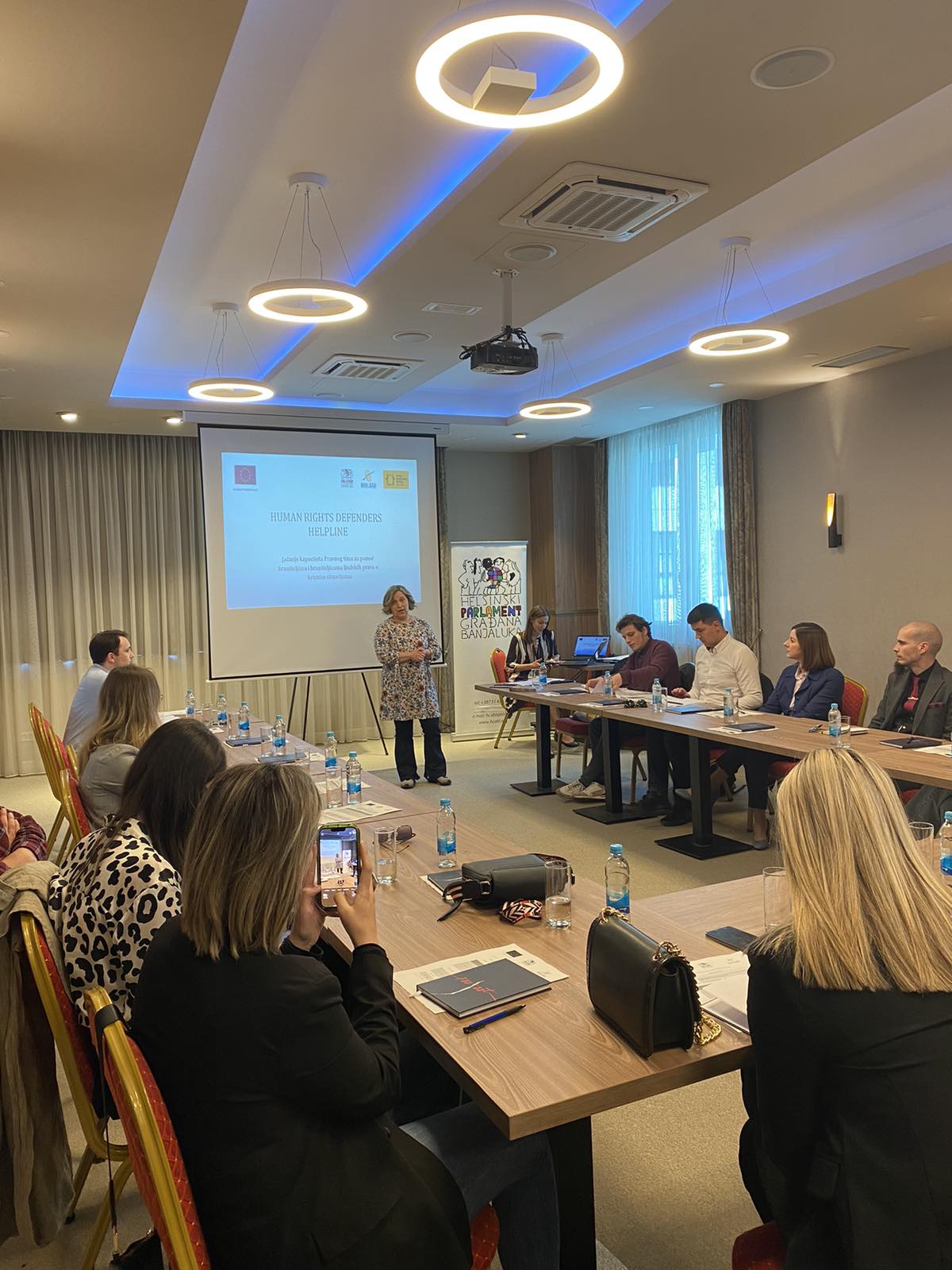On Friday, November 18, Helsinki Citizens’ Assembly in cooperation with the Ministry for Human Rights and Refugees of BiH and Agency for Gender Equality of Bosnia and Herzegovina in Parliamentary Assembly of BiH formally for the first time participated in marking International Men’s Day.
Event titled “Role of Men in Achieving Gender Equality” was created as joint initiative of the civil society organizations and government institutions which is a huge step in achieving and continuity of cooperation in terms of common efforts for achieving more equal BH society.
At the beginning of the event, participants were greeted by UN residual coordinator in BiH, Ingrid Macdonald, as well as the Ambassador of OSCE Mission in BiH Brian Aggeler.
“We know that men have a role in society, but certain issues are also associated with them. We know that politics in BiH, as well as around the world, is dominated by men. It is always a fact that after the elections in BiH, there are fewer women who won mandates. However, this year a huge step was made because we have one female member of the Presidency of BiH. It is important that politicians free up space for female politicians. This is important for the reason that those societies in which we have women are much more successful. It is necessary that such a space be freed for women politicians in BiH as well”, said Macdonald.

Svjetlana Ramić-Marković on behalf of HCA presented the Directive on Work –Life Balance for Carers
Ms. Lisa Curman, second secretary in the Development and Cooperation Department of the Embassy of the Kingdom of Sweden, spoke on behalf of the Embassy of the Kingdom of Sweden about the role of men in achieving gender equality.
Branislava Crnčević Ćulić from the Agency for Gender Equality BiH/MHRR spoke about the Challenges of Harmonizing Parenthood and Professional Life.
Activist Svjetlana Ramić Marković spoke about the balance between the work and private life of parents and carers. She pointed out that inadequate measures for harmonizing professional and family life are one of the main causes of women’s underrepresentation on the labor market, advancement, as well as differences in salaries and later pensions to the detriment of women (men in Bosnia and Herzegovina earn on average about 13 percent more than women).
“The absence of paid mandatory paternity leave and parental leave in BiH contributes to the fact that fathers rarely decide to use this leave for more than the two to five days which is how much employers usually allow them, and that mothers must stay with their children for all 12 months, which is stipulated by positive legal regulations in our country. The lack of accommodation capacity in preschool institutions only further deters women from accessing the labor market or full-time work, which ultimately contributes to generational poverty, because the family is economically dependent on only one family member. According to the 2020 labor force survey, only 42% of women with small children were employed full-time,” said Ramić-Marković.
“Due to unevenly designed policies to achieve a balance between work and private life for women and men, gender-based stereotypes and differences in terms of obligations at the workplace and based on employment, as well as obligations related to the care of children and other dependent family members, persist. We all know that women are usually the ones who, when returning from maternity leave, usually use sick leave or vacation days if their child gets sick. In the private sector, employers often say the words “really, again?” Directive (EU) 2019/1158 of the European Parliament and of the Council from 2019 on the work-life balance of parents and carers establishes minimum requirements for paternity leave, parental leave and leave to care for other family members, as well as minimum requirements for flexible working conditions for workers who are parents or carers. The goal of the Directive is greater participation of women in the labor market and the achievement of their full potential and financial independence,” concluded Svjetlana.
Jasmina Omerbegović, Major in the Armed Forces of BiH/MoD of BiH, presented the topic “The Role of Men in Achieving Gender Equality in the Armed Forces of Bosnia and Herzegovina”.
The results of the research “Father on Maternity Leave” were presented by Amina Dizdar on behalf of the Sarajevo Open Center.
Hari Hamzić, expert advisor at the Institution of the Human Rights Ombudsman of BiH, spoke about the experience of using parental leave. Psychologist from the Association “Feniks” Tuzla Bojan Šošić gave an overview of Achieving Gender Equality and Men’s Mental Health.
The author of the book “Critique of Toxic Masculinity” and journalist Nikola Vučić focused his attention on the experiences and challenges faced by men in Bosnian-Herzegovinian society.
The ceremony of International Men’s Day was held in the Blue Hall of the PA BiH in Sarajevo, and the entire event was moderated by Adnan Rondić.





